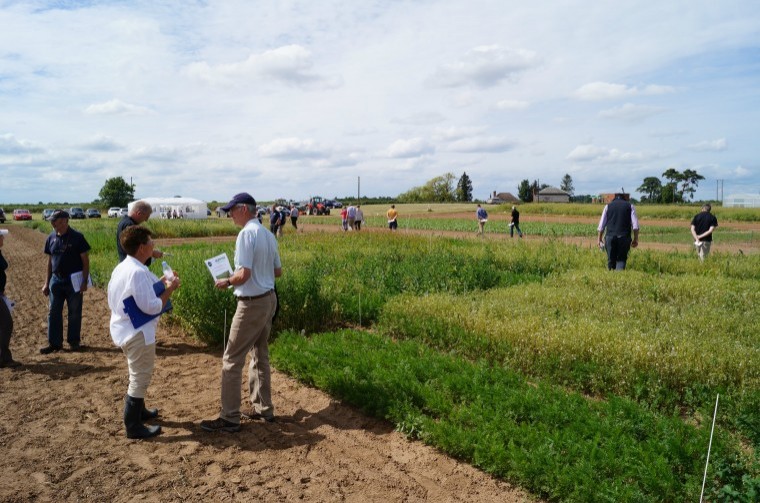The new work will target disease, pest and weed problems identified as high priorities in the new 2017-2020 horticulture strategy. These are recognised by sector panels and crop associations as vital areas of research in the fight against a dwindling crop protection armoury.
The programme builds on the success of the original SCEPTRE project, which saw more than 140 chemical and bio-control products trialled in the UK.
Last time round
The four-year AHDB Horticulture-funded SCEPTRE programme tested some of the key “pipeline” conventional chemical and bio-control products that were available for edible crops. More than 80 chemical pesticides and 60 bio-pesticides were tested on fruit and vegetable crops, field-grown and under protection.
Twelve Extension of Authorisation for Minor Uses (EAMU) have been issued directly linked to SCEPTRE, including the emergency authorisation of Benevia 10OD, aimed at helping growers against the large influx of Diamondback moth last year.
Chemical companies continue to produce new, lower environmental impact actives for use on major world crops. But the number of new actives that become registered for use on horticultural crops is relatively small, largely due to the small size of the markets in relation to development costs.
Dorin Pop of Bayer AG, said: “Manufacturers find it uneconomic to test and develop products for ‘minor horticultural crops’. This is where SCEPTRE has added real benefit to growers, to hasten the process and bring chemistry to the industry.”
Benefits of SCEPTRE:
- Earlier evaluation of new products for horticultural crops
- Many new actives and several new modes of action
- Large knowledge bank of product performance and crop safety
- AHDB Horticulture working more closely with chemical companies and CRD to secure labels and EAMUs
Meeting the new strategy
AHDB horticulture strategy director, Steve Tones said: “SCEPTRE+ has arrived at just the right time, as we embark on a new strategic direction. I have spoken to so many growers who identify crop protection as a high priority to remain competitive and productive.”
“Our Sector Board wants to focus AHDB levy investment on these activities that add the most value, avoid duplicating work already being done by others, and build our work on cross-cutting themes of broad benefit to all horticulture sectors.
“We understand Extensions of Authorisations for Minor Uses (EAMUs) are essential crop protection measures for our growers and this project will escalate the rate at which new products get authorised. Other, more forward-looking work will focus on the long term development of robust integrated crop management systems to minimise future crop losses from diseases, pests and weeds.”
Sheridawn Schoeman of Dow AgroSciences, added: “We are pleased to see the announcement of the new SCEPTRE+ programme. This is especially important in a period of continued loss of active ingredients and products for growers. This programme will go some way to addressing this critical situation.
The initial project utilised resource in an efficient way, with stakeholder buy-in to develop and deliver chemistry for crops that previously would not be considered. The data gathered during the project has provided scope to continue to bring new products to the horticultural market.”




